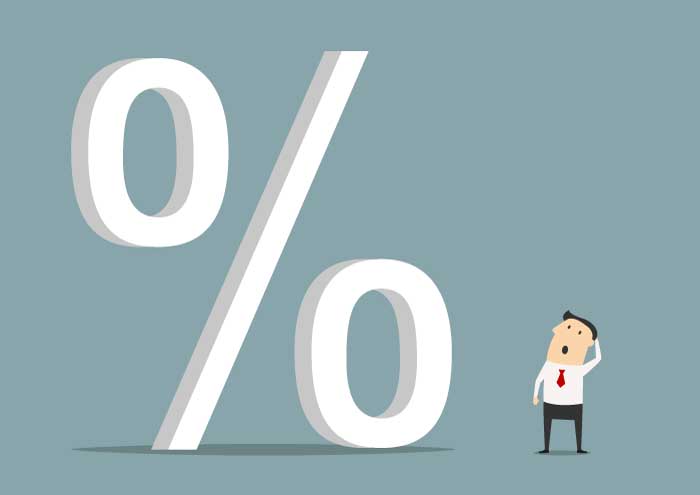Interest rates are now at their highest level since 2009 since the most recent increase by the Bank of England. To understand how they can affect your commercial mortgage rates and where they’ll go next, it’s worth taking a look back to see what factors influence them.
This means looking into what factors affect your commercial mortgage rate, how the Base Rate is critical to your mortgage application and when the current low rates are likely to end.
Why are Commercial Mortgage Rates Important?
Funding is only useful if the interest rates on it are both affordable and beneficial to the business.
When rates get too high, funding gets more expensive and the property market slows down. The higher commercial mortgage rates become, the more expensive and unattractive they are to the buyer.
Even when capital is freed up, if the level of funding isn’t there to allow the business to expand or create investment opportunities, then a commercial mortgage won’t make sense.
The rate of lending is critical to affordability when purchasing a property.
How are Commercial Mortgage Rates Calculated?
Lenders don’t have an easy reference of go-to rates. There isn’t a standard offering to businesses based on known Loan to Values (LTV) or a pre-determined set of risk factors for each applicant.
Commercial mortgage rates are almost always offered (and reviewed) on an individual applicant’s unique circumstances. They are usually based on the type and condition of the property that is being offered as security.
If you’re looking to raise finance for your business, being able to provide a good sized deposit (in excess of 30%) for the premises you are seeking to purchase or refinance, will attract the best deals. Strong security is critical in capturing the best rates, but there are several other factors that will dictate what rate you will actually be offered.
Factors Affecting Commercial Mortgage Rates
The key factors that affect the rate you are offered include:
– Your past finance arrangements
-The quality of the proposal you are bringing to the table.
Primarily the lender is looking for a degree of satisfaction. They want to know that you have a workable plan and can make the repayments.
It is not simply enough to have a large deposit to purchase a property. No lender actually wants to repossess assets, so they need proof of your ability to make the repayments – they call this ‘serviceability’.
The four biggest factors of identifying serviceability are risk, LTV, credit rating and loan amount.
Risk
How long has the business been running? Is it successful? Are the directors willing to personally guarantee?
Loan to Value
To get the best rates the LTV must be lower. Putting up more deposit means offering more security, presenting a lower risk to the lender and hence a more favourable rate.
Credit Rating
How good is your credit rating? The lender will look through many years of accounts to see how viable your business has been, how viable your business is now and what your future projection looks like.
Loan Amount
The amount you want to borrow will also be reflected in your rate. Borrowing £2,000,000 will incur a lower interest rate than borrowing £50,000.
Types of Commercial Mortgage Rates
Commercial mortgage rates are either Fixed Rate or Variable Rate.
Fixed rates are set for a period of time before either reverting to the variable rate or re-negotiated. This could be anything from two years, to the end of the loan itself. They tend to be slightly higher than variable rates.
Variable rates change depending on the Bank of England base rate. Lenders will price each fixed mortgage loan rate on individual merits, it is not possible to advise value or reasonable rates.
How Does Bank Rate Affect Commercial Mortgages?
All commercial mortgage rates are linked to the base rate, whether they are fixed, variable, a tracker or a mix.
After a period of consistently low interest rates, s significant surge in the cost of living has seen rates hiked up to 5% in an attempt.
However, the Bank of England has said that it expects the inflation rate to drop significantly throughout the remainder of 2023. This may not lead to an instant decrease in interest rates, but it should mark the end of figures rising.
In the meantime, the base rate serves as the benchmark for most other interest rates in the UK, including commercial mortgage rates. This means commercial mortgages will current be affect by higher borrowing costs, increased fixed rates, a slower property market and higher rates of repayment.
The Base Rate: Past, Present and Future
From 2009 to 2021, The Bank of England base rate remained relatively stable. However, the economic landscape changed significantly in the subsequent years, leading to a series of rate increases.
In 2021, a 5.1% rise in interest rates was recorded up to November, the highest since 2011. This prompted the Bank of England to increase rates to 0.25%, the first hike in three years.
Throughout 2022, the Bank grappled with soaring inflation. The base rate was increased to 0.5% in February, marking the first back-to-back rise since 2004. As living costs escalated, rates were further increased to 0.75%, the highest since the start of the Covid-19 pandemic. By May, rates had reached 1%, the highest since 2009.
With inflation at a 40-year high in June, rates were raised to 1.25%, the highest in 13 years. In August, rates were increased by 0.5% to 1.75%, the largest hike in nearly 30 years. By November, the UK interest rate had reached 3.00%, following a 0.75% hike.
In 2023, the Bank continued to raise rates in response to rising prices, reaching 4.5% by May. By June, the UK Base rate was raised to 5%, as the Bank battled soaring prices and inflation. This rate, while not historically high, is significant for those unfamiliar with the high interest rates of the 1980s, including the peak of 14.875% in 1989. The 1970s saw the highest base rate of 17% in 1979.
How This Affects Property Prices
Any rise in the base rate affects the property market. Even a small rise in the base rate has the potential to create panic. House prices rely on a confident market and increases can scare away investors, even if they are only slight rises.
The big property crash in the 1980s came after a run of high interest rates, only in the late 1980s did the rise in property prices slow down. It happened again in the 1990s when the housing boom erupted as house prices rose rapidly once more, although the actual interest rates were steadily falling.
Whatever the base rate does next will affect the rates offered to businesses for commercial mortgages. Rates and property prices are inextricably linked, and while property prices are stable and interest rates still remain low, this may not always be the case.
What Commercial Rates do you Qualify for?
The rates applied to your commercial mortgages and business loans are not always the same predetermined ones you can enjoy when applying for a personal loan.
A lot of information has to be considered, along with the key four factors previously stated, before the commercial mortgage lender will pass your application for a loan. In short, your rate is dependent on:
- The size of the loan
- The type of lender you approach
- The loan-to-value ratio (LTV)
- Your credit history
- The strength of the business plan
- The financial security offered
- The yield potential
This is the same for each and every application because each borrower and property has a different set of unique risks attached to them.
Evidently, loans with an assumed low risk will enjoy some of the better rates available. On the other hand, loans which are seen to be high risk can find themselves having surprisingly high rates applied.
What Next for Commercial Mortgage Rates?
As previously mentioned, commercial rates will depend on the base rate.
And though inflation is beginning to fall, the base rate may take a little longer to follow suit. It is likely that the Bank of England will resist introducing to fast a drop in the interest rate to prevent a sharp reversal of the inflation drop.
Predicting global economics used to be as easy as buying bank shares and watching them rise. The effects of globalisation, the banking crisis and people’s trust in the finance sector, means financial markets have never been more difficult to predict. Investment has slowed and growth has been even slower- forcing the current low base rate to stimulate growth.
When Will I Pay More For My Commercial Mortgage?
Interest rate rises will happen at some point, which the governor of the Bank of England has said multiple times. It would certainly be wise to revisit your mortgage product and ensure you know what‘s going to happen if and when rates change.
For instance, for a £500,000 mortgage (on a 20-year term) having a 2% increase in interest rate will result in a £540.00 increase in monthly mortgage payments.
Therefore, if you are on a variable rate, you may want to keep updated with what fixed-rate packages are being offered. This is in case the base rate starts to make a move, although the lenders will undoubtedly be well ahead of you.
Commercial mortgage rates continue to stay low, alongside interest rates in general. Combine this with steady property prices and it is still a good time to get a commercial mortgage.
If you’re interested in finding out more about commercial mortgages or want to learn more about what kind of commercial mortgage rates you could access. Call us today on 0333 006 9141 or request a call back below.
This article was last updated on 26/7/2023.







